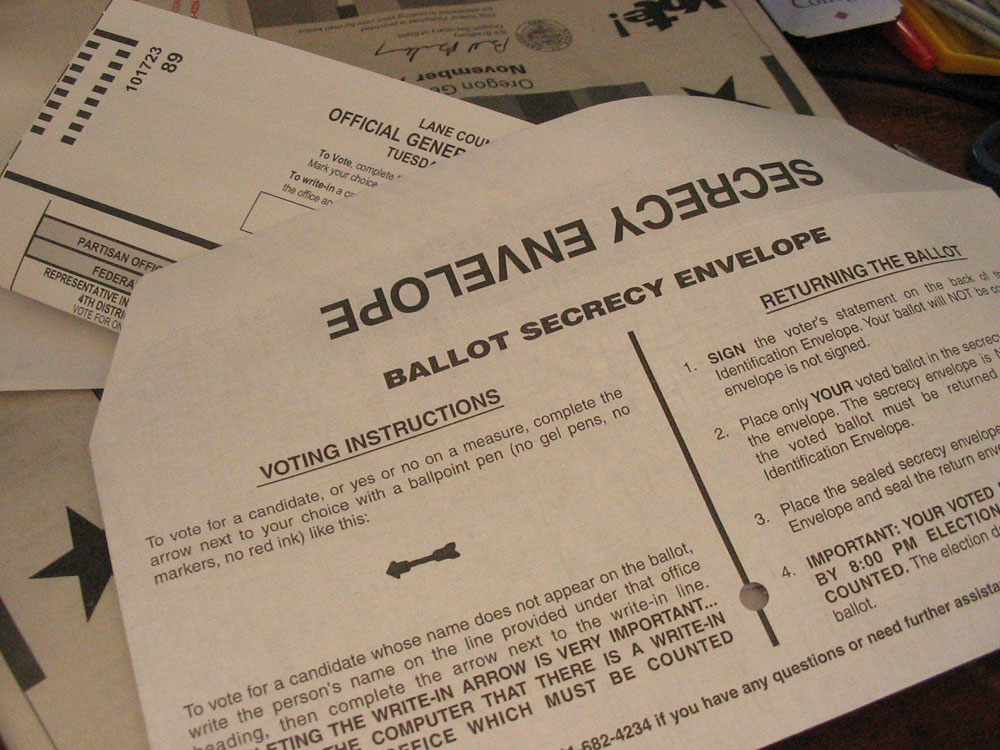
April 29, 2020; Slate
When we think about discrimination and voting rights, most thoughts go to race and income levels. Rarely do we focus on age. But if you want to vote absentee in Texas, Indiana, Louisiana, or Mississippi, you have to be 65 or older. In Tennessee, you can be 60, and in Kentucky, absentee voting is limited to voters of “advanced age,” whatever that is! But, if you are younger and want to vote absentee, which many do in these days of COVID-19 and uncertainty about what things will be like in November, you have to give a reason. In Texas, concern about COVID-19 is not an acceptable reason.
It is possible that the six other states with “age limits” will also attempt to block requests for absentee ballots. If they do, they will be running afoul of the 26th Amendment to the US Constitution. This amendment came about as a consequence of the Vietnam War, when young 18-year-old soldiers said they were “old enough to fight and die for their country, but not old enough to vote.” It was ratified in 1971 in a record 100 days.
What is important for the issues of voting rights and age discrimination today comes in an examination of just what the 26th Amendment says. It does much more than give 18-year-olds the right to vote. Writing in Slate, Mark Joseph Stern notes:
The 26th Amendment is actually a broad ban on age-based voting restrictions. It declares that the right to vote “shall not be denied or abridged” for citizens 18 and over “on account of age.” In other words, the amendment does not just protect 18-year-olds’ ability to vote. It also forbids any law that abridges adult citizens’ right to vote because of their age. The amendment established a policy against laws that burden an adult’s suffrage due to their youth, reflecting a national consensus that younger adults deserve fully equal access to the ballot.
Sign up for our free newsletters
Subscribe to NPQ's newsletters to have our top stories delivered directly to your inbox.
By signing up, you agree to our privacy policy and terms of use, and to receive messages from NPQ and our partners.
In Texas, that would mean anyone between the ages of 18 and 65 should have the same access to absentee ballots, and that issue will play out in the courts in a federal lawsuit filed this week. Unless the court wants to rewrite the 26th Amendment (and they might), Texas should be prepared to issue more absentee ballots.
We have seen the confusion and harm that can result from states that play partisan politics with voting rights, particularly with absentee voting and vote-from-home ballots in this time of pandemic. NPQ wrote about the chaos of Wisconsin’s primary that resulted in people having to choose between protecting their health and protecting their right to vote. Since that primary, a number who stood in line to vote that day have tested positive for the virus.
Most of the past litigation around the 26th Amendment has focused on age discrimination against younger voters. There has been a concerted effort to discourage college students from registering and voting while enrolled on campuses away from where they were born and raised. Writing for Vanderbilt University in 2018, Amy Wolf points to the work of Jenny Diamond Cheng who says that because millennials are racially and ethnically diverse, we are seeing the merger of voting discrimination based on age. These become constitutional issues that violate the 26th Amendment as they target young voters. Cheng believes the 26th Amendment has been “wildly underutilized” in voting rights litigation.
All things considered, those who are seeking ways to ensure voting rights and secure absentee ballots and vote-from-home ballots for this November’s elections have another arrow in their quiver in the 26th Amendment. As Jenny Diamond Cheng wrote in the Syracuse Law Review, “The Twenty-Sixth Amendment was, in many ways, a product of the baby boom. As I have argued elsewhere, it is no coincidence that the eighteen-year-old voting movement really took off in the late 1960s, just when the first baby boomers turned twenty-one. Many of today’s millennials are, of course, the baby boomers’ children. There is a certain narrative satisfaction in these young voters using their parents’ Amendment to push back against efforts to abridge their voting rights.”—Carole Levine













